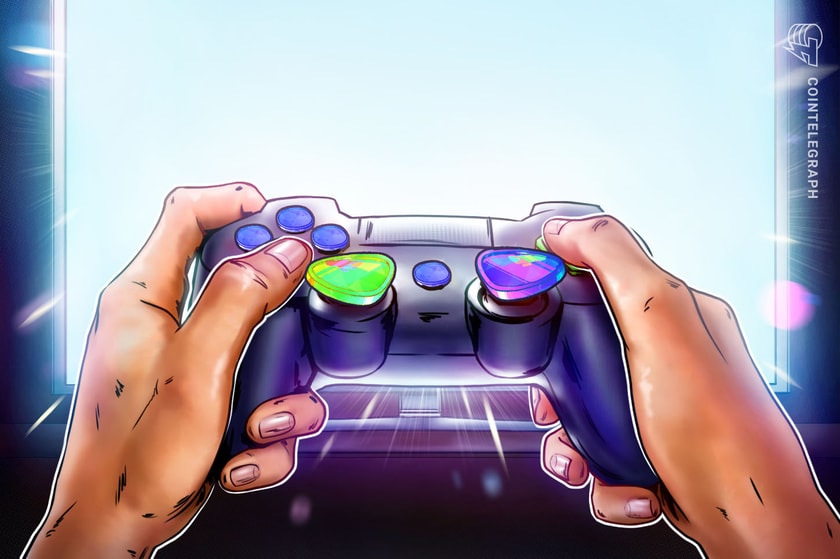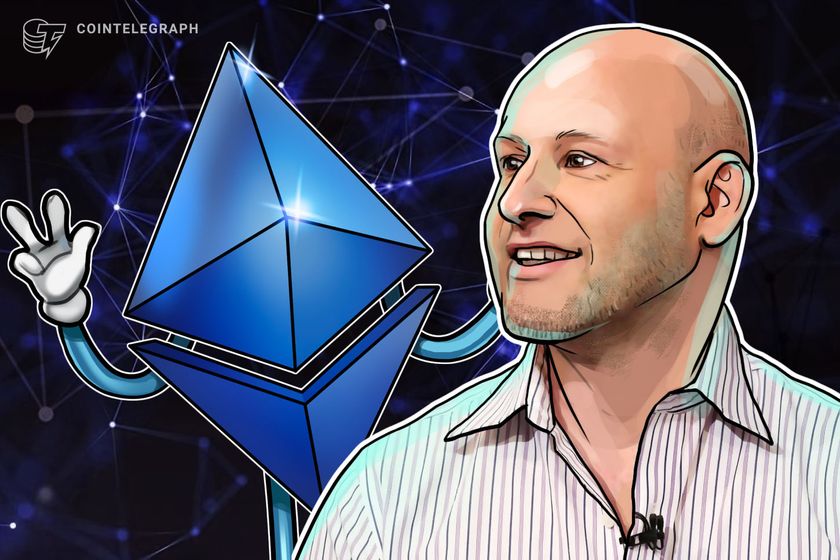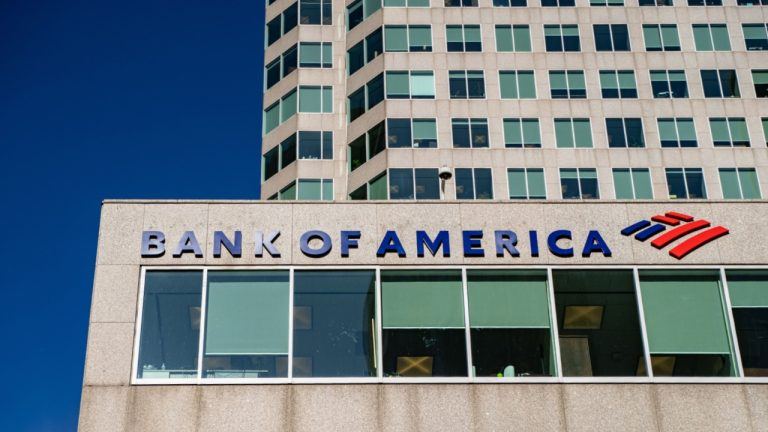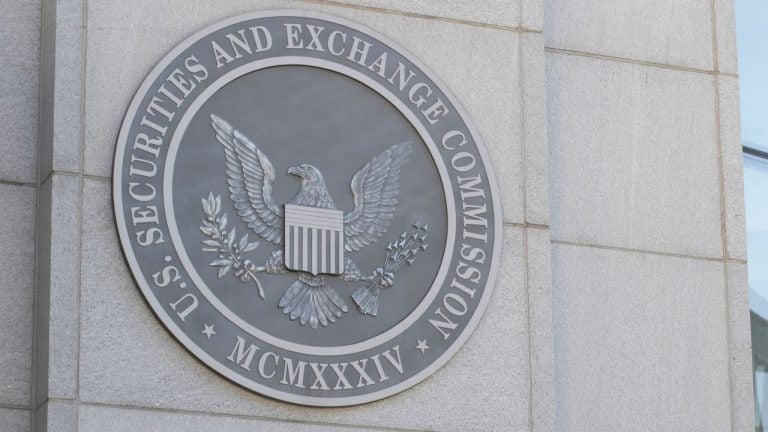
Nifty News: Sega exec calls P2E games ‘boring,’ Tom Brady’s NFT firm switches it up and more

Sega is still reportedly licensing its lesser-known properties out for NFTs and blockchain games, but its best ones are being kept close.
Sega co-COO yawns at P2E games
The co-chief operating officer of Sega has called play-to-earn games “boring” amid the firm’s retreat from franchising some of its hottest properties to the blockchain gaming space.
Bloomberg reported on July 6 that Shuji Utsumi, the co-COO of the gaming company behind Sonic The Hedgehog, said Sega would shelve plans to develop blockchain games for now.
Third-party blockchain gaming projects would also not get access to Sega’s biggest franchises, with Utsumi adding:
“The action in play-to-earn games is boring, what’s the point if games are no fun?”
However, some of the less-known Sega titles will still get licensed for runs in nonfungible token (NFT) collections, its lesser franchises are getting blockchain games slated for announcements later this year and Sega is still pumping millions into related projects.
Breaking: Via @bloomberg, SEGA Co-COO Shuji Utsumi has confirmed that SEGA’s biggest IPs, Sonic will not use blockchain, to avoid devaluing them. #SonicNews
They were non-committal on using Web3 for their fabled “super game.”
Source: https://t.co/fgeVTRYHdB
— Sonic Stadium ✪ Sonic the Hedgehog Community (@sonicstadium) July 7, 2023
It’s up in the air if the “super game” touted by Sega for the last year — set for launch in 2026 — will still involve Web3 tech.
Utsumi believed the tech is useful for such cases as moving in-game items between gaming titles but Sega may hang back until the tech sees wider use.
“We’re looking into whether this technology is really going to take off in this industry, after all,” Utsumi said.
Tom Brady’s NFT co. breaks up with NFTs
Professional American football star Tom Brady is reportedly switching up the strategy for his NFT-focused startup Autograph — which is now moving away from NFTs.
On July 6 The New York Times reported Autograph’s marketing has quietly removed crypto language, downplays terms such as NFT and has shifted focus away from marketing them with a new focus on helping stars generally spin up loyalty with their fans, according to people with knowledge of the firm.
Brady co-founded the company in 2021 with the aim of helping celebrities sell NFTs, scoring a $170 million Series B in January 2022 and lining up NFT deals with ESPN, the pro golfing organization the PGA Tour and others.
Autograph’s revenue supposedly tanked in 2022 in line with the wider crypto market, according to a person familiar with the firm’s finances.
Brady’s reputation in crypto has suffered due to his ties with the now-bankrupt crypto exchange FTX. He’s also named in a class action lawsuit aimed at alleged celebrity promotors of the exchange.
No need for Euro Metaverse regulations…yet: EU competition chief
Metaverses and those who create them won’t need to worry about specific regulations — at least not yet in the European Union (EU).
Reuters reported on June 6 that EU competition commissioner Margrethe Vestager said there haven’t been any concerns triggered over the space even though Tech Giants Microsoft, Meta and now Apple have together poured billions into trying to corner the nascent sector.
The big spending by a small concentration of companies in a new market raises no competition concerns for Vestager:
“Actually we see that there is a lot of innovation when it comes to virtual worlds. I don’t think that any company can claim that they will own it, so to speak, but that is what we hope to find out.”
Existing EU laws around market monopolies, privacy and the incoming rules on artificial intelligence can also be applied to the Metaverse according to Vestager.
#Alphabet#Amazon#Apple#ByteDance#Meta#Microsoft#Samsung
⬆️the #platforms that notified us under the #DMA
If confirmed as gatekeepers, they will need to comply with #DMA keep markets fair & open, for us to have wide and affordable choices onlinehttps://t.co/0tqmE02r1u pic.twitter.com/h4wn3mUGKc
— Margrethe Vestager (@vestager) July 4, 2023
“In Europe, now we have a body of digital legislation, she added. “I think we do have time to explore, to know that we should not jump to regulation as the first sort of safety pad.”
She said next week she will present a metaverse-related initiative aimed at helping antitrust regulators understand the space.
Major League Baseball gets new virtual ballpark
U.S. professional baseball is getting a stadium in the Metaverse, apparently, the first professional league to own a virtual world for fans to gather in.
On July 5, metaverse tech firm Improbable announced the new virtual space, giving it the inventive title of “MLB virtual ballpark.”
Related: Yes, the Secret Service has an NFT collection, and no, it’s not for sale
The virtual stadium was developed within Improbable’s “MSquared” network of interoperable Web3 metaverses. Improbable also helped NFT conglomerate Yuga Labs build its Otherside metaverse.
⚾️ Announcing the launch of the all-new @MLB virtual ballpark. ( 1/7)
The #MLB virtual ballpark will allow fans to gather and interact simultaneously in a single place, making it the 1st service to host such large interactive sports experiences. pic.twitter.com/dA9v0iXiAI
— Improbable (@Improbableio) July 5, 2023
MLB’s executive VP of media and business development, Kenny Gersh, said “not everyone has the opportunity to attend Major League games” but now that’s been opened “to anyone with an internet connection.”
Improbable founder and CEO, Herman Narula, believed the tech could help with “creating and selling […] Digital assets.” The League has an existing partnership with the NFT platform Candy Digital.
Other Nifty News
NFT royalties on Ethereum are at a two-year low according to data shared with Cointelegraph by analytics firm Nansen. The royalty drop comes as the floor price of Yuga’s flagship Bored Ape Yacht Club (BAYC) NFTs are also hitting a dip.
Animoca Brands co-founder Yat Siu told Cointelegraph the firm is optimistic about the blockchain gaming sector and said it’s looking for a license before putting its $800 million metaverse fund to work.
NFT Collector: Snoop’s NFT nostalgia, The Goose draws Gen Y to Sotheby’s
Go to Source
Author: Jesse Coghlan









